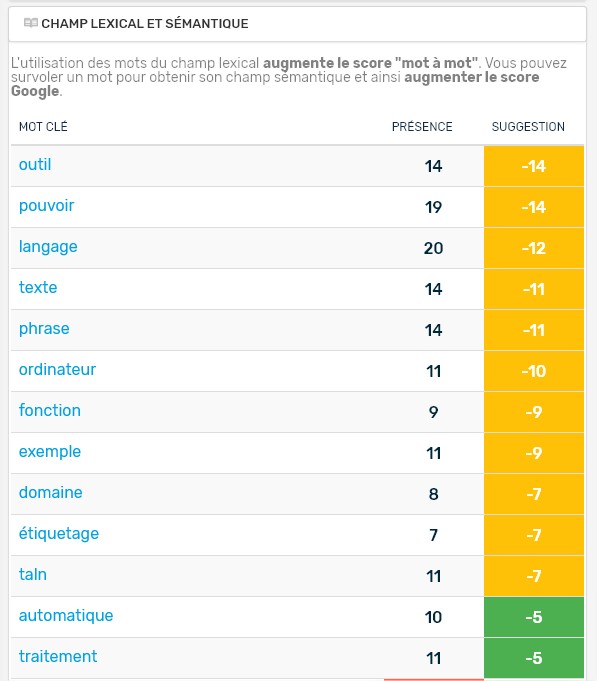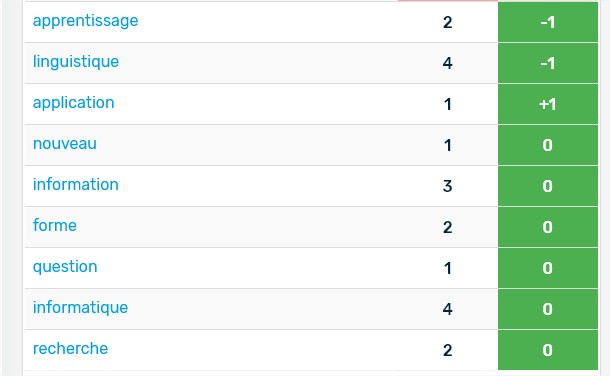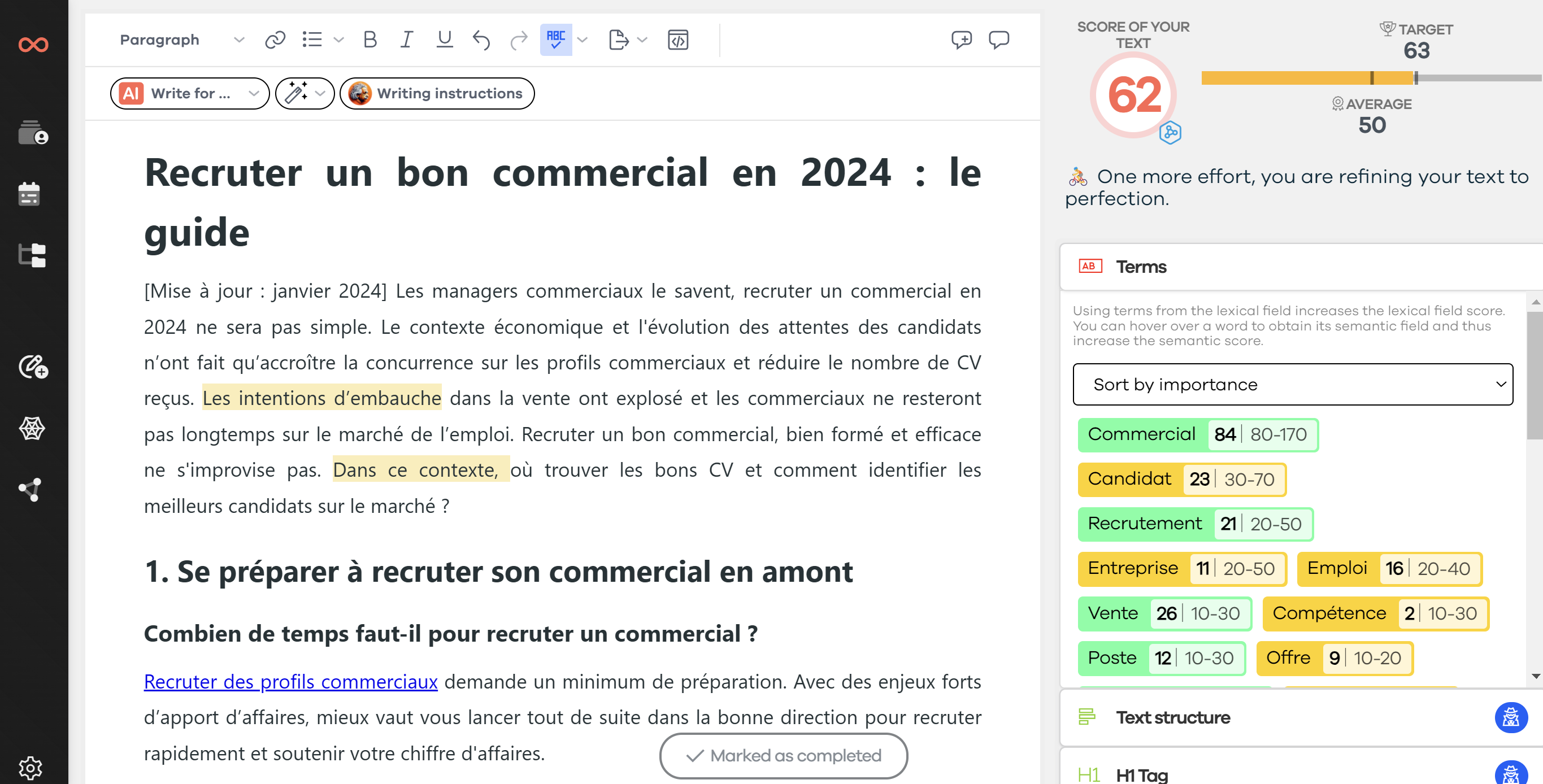The latest Google update has thrown SEO experts into confusion. Google BERT is an improved version of the Google Rankbrain algorithm. Google considers this update as "one of the biggest leaps forward in the history of search engines". But from my point of view, the impact of the algorithm would actually be minimal.
So what to think?
What is BERT?
The BERT algorithm is an Open Source neural network that allows automatic processing of natural language. The acronym stands for "Bidirectional Encoder Representations from Transformers" and was introduced by Google last year.
BERT is a technology that allows the integration of words and their disambiguation thanks to word embedding. This is its main quality, unfortunately, it is also its biggest flaw, as this technique is demanding in computing capacity and its large-scale use is therefore quite costly.
Word2vec and other models allow pre-calculating word vectors for each sentence and saving them in a database, so they can be extracted later. This is not the case with BERT, with which it is necessary to systematically recalculate the vectors.
What's the difference between word embedding (word2vec) and BERT?
Here's an example:
- Sentence 1: The lawyer meets his client several times before the trial.
- Sentence 2: To choose an avocado well: pay attention to the color and appearance.
If I want the algorithm to understand the meaning of the word "LAWYER" which refers to both a profession and a fruit, with word embedding, I just need to extract THE pre-calculated vector from the database. With this approach, there is only one vector for the same word.
On the contrary, BERT being a technology that creates "contextualized" vectors, I will have to analyze the two sentences in the BERT network. BERT will generate two very different vectors for the word "lawyer" which appears in two very distinct contexts. We then speak of lexical disambiguation.
Thanks to its disambiguation capacity, BERT is at the forefront of progress on many natural language understanding tasks. But, this skill also makes it computation-hungry and therefore difficult to exploit. That's why this type of algorithm is powerful in question analysis or content rewriting. However, it has limitations.
Its computing needs make its application in search queries limited, at least for now. There is no doubt that there will be improvements in the near future and that processing needs will eventually be reduced.
How does BERT help internet users?
The Google BERT update allows internet users to get better results from long conversational type queries (Google is always focused on voice search optimization). Today, the use of a keyword string without structure is no longer necessary to make Google understand.
If the Google BERT update directly affects internet users, it's more complicated when it comes to content specialists. Google has improved its understanding of context, but that doesn't mean you need to start writing thousands of pages targeting the long tail.
This update rather encourages to continue writing well-organized, rich and complete content.
What are the effects of BERT on SEO?
The impact of this update is not unanimous. Google claims it is the "biggest leap forward in the last five years" with 10% of search results affected by the change.
Consultants and SEO experts estimate that the impact will be minimal. They do not predict significant changes because they do not control long-tail conversational queries. They mostly monitor shorter phrases and main terms that are not impacted by BERT's natural language processing capability.
BERT is considered a major update and it is therefore not surprising that its arrival is accompanied by a lot of misinformation. I have unfortunately already read SEO expert press releases claiming to specialize in BERT optimization. Following the advice of these ill-advised experts results in a waste of time and money spent pursuing an unwise strategy based on bad tactics.
Is it possible to optimize for BERT?
Let's be clear, BERT is not a ranking factor. And it is not possible to optimize a page for a factor that does not exist. BERT helps in understanding the queries of internet users using the long tail and, therefore, improves the relevance of the results.
BERT models are applied to both organic search results and featured snippets. While it is possible to optimize content for this type of query, you cannot "optimize for BERT".
At SEOQUANTUM, we take BERT into account, but we do not optimize for BERT.
We advise you to focus more on long-tail expressions and on the search intent of the user.
BERT is not the only reason to favor long-tail keywords. A complete and rich page will always appear on at least a few hundred searches. See for yourself:


This article on natural language processing is referenced on more than 100 keywords. Increased use of long-tail search terms such as: "natural language processing with automatic learning", "NLP means natural language processing" and many others would improve its ranking.
Now, suppose you have decided to create new content, instead of optimizing the current page.
Which long-tail expression would you target?
There are many expressions that could be added to form sentences that "please" BERT:
- The best
- What is a good
- How to find
- For dummies
- For beginners
My prediction about Google BERT
Google BERT will affect 20% of searches within a year, double its current percentage.
Internet users often use a string of keywords because they think Google understands this type of query better. Yet, this does not really correspond to the way they would naturally ask a question. It is indeed not natural.
As more and more internet users discover Google's ability to understand complex queries, their way of using the search engine will change. Indeed, they will move from using a string of keywords to longer sentences. It's simply human nature.
Summary
The ability to use content to tell a story is what will separate content marketing experts from amateurs. Each Google update provides additional reasons to create better content.
A semantic analysis tool like SEOQUANTUM can help your business produce quality content and allows you to boost your authority quickly.
More resources about BERT:
https://www.webrankinfo.com/dossiers/google-search/bert
https://www.blog.google/products/search/search-language-understanding-bert/
https://towardsdatascience.com/bert-explained-state-of-the-art-language-model-for-nlp-f8b21a9b6270
Need to go further?
If you need to delve deeper into the topic, the editorial team recommends the following 5 contents:

